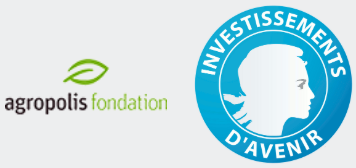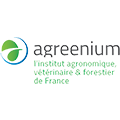Agroecology, an introduction
- Duration: 7 weeks
- Effort: 24 hours
- Pace: ~3h30/week
- Languages: English and french
What you will learn
At the end of this course, you will be able to:
- grasp the various approaches to agroecology at the interface of agronomy, ecology and human sciences. Students will understand how implementing agroecological principles transforms agro-ecosystems.
- position the emergence of agroecology in its various dimensions (science, practice, social movements) in a historical and geographic context.
- describe and analyze situations where agroecological practices are implemented.
- identify agroecological practices in their own surroundings and analyze the way they’re implemented, identifying levers for action as well as obstacles along the agroecological transition.
Description
Is it true that agroecology is THE solution to the challenges that agriculture faces today—feeding a growing population while conserving natural resources in a world where uncertainties about climate change, biodiversity, energy etc. keep intensifying?
Is agroecology a mere fad, or a significant scientific, technical and political revolution?
This course aims at helping you discover what agroecology is, through the complexity of the various approaches that have emerged over the years and in various regions of the world, and through the ways they can be implemented in the fields, and studied, as agricultural practices.
The syllabus has been designed at the interface of agronomy, ecology and social sciences. The course’s dynamic is one of participative learning, and heavily relies on the social and geographic diversity of the participants.
Why this course ?
- To discover what agroecology is about, as the term is gaining more and more visibility in the media and in political circles, and is stirring up hope for increased independence from industry among farmers and development advisors.
- To study the scientific foundation of agroecology through a multidisciplinary approach that includes agronomy, ecology, anthropology, soil science, sociology, zootechnics, and more.
- To interact with a diverse community: over 12,000 participants from 100 countries joined the first iteration of this course in October 2015.
- To experience innovative teaching methods designed by educators at Montpellier SupAgro and agreenium’s partnering organizations.
Format
This archived course remains open to registrations although it is not facilitated by the course teachers
Prerequisites
Anyone curious about agroecology: no prerequisite is required to benefit from this course.
Professionals who want to expand their knowledge : they’ll find here a flexible learning platform built on the latest findings of scientific research and on-the-ground development projects.
Students in need of training : they’ll be able to apply the scientific fundamentals that this course provides.
Passionate agroecology practitioners or advocates who are eager to share their knowledge and skills, and to learn from others: this course is designed around information-sharing tools and opportunities among a widely diverse community of participants.
Assessment and certification
This course does not issue badges, attestations or certificates.
Course plan
- Setting up the context—the emergence of agroecology
- Narrowing down a definition—the various approaches to agroecology
- A view from the trenches—agroecology as a set of agricultural practices
- What’s next—the transition to agroecology H
- how does agroecology show up in your neck of the woods—focus on students’ mini-reports
Course team
Stéphane de Tourdonnet
Categories
Antoine Gardarin
Categories
Aurélie Javelle
Categories
Magali Jouven
Categories
Claire Marsden
Categories
Aurélie Metay
Categories
Marie-Laure Navas
Categories
Sophie Thoyer
Categories
Organizations
Partners

Montpellier SupAgro
MMontpellier SupAgro is France’s Institute for Higher Education in Tropical and Sub-Tropical Agri-Food Sciences
This online course was produced under the PARMI (Promoting AgRoecology deMands Innovation in education) program. Launched in October 2014 for a two-year period, PARMI is a collaboration between seven research units at Montpellier Supagro dedicated to agroecology and three partners at Antananarivo University, Madagascar.
Founders


Agropolis Fondation
Agropolis Fondation supports the scientific programs of its members and its international partners in order to advance agricultural research and sustainable development
This project was funded in part by the national research agency under its “Investment For The Future” program, through the coordination efforts of Agropolis Fondation. Reference ANR-10-LABX-001-01 Labex Agro.
Agreenium/IAVFF
Agreenium Online University federates and supports online courses in agrosciences in France.
License
License for the course content

Attribution-NonCommercial-ShareAlike
You are free to:
- Share — copy and redistribute the material in any medium or format
- Adapt — remix, transform, and build upon the material
Under the following terms:
- Attribution — You must give appropriate credit, provide a link to the license, and indicate if changes were made. You may do so in any reasonable manner, but not in any way that suggests the licensor endorses you or your use.
- NonCommercial — You may not use the material for commercial purposes.
- ShareAlike — If you remix, transform, or build upon the material, you must distribute your contributions under the same license as the original.
License for the content created by course participants

Attribution-NonCommercial-ShareAlike
You are free to:
- Share — copy and redistribute the material in any medium or format
- Adapt — remix, transform, and build upon the material
Under the following terms:
- Attribution — You must give appropriate credit, provide a link to the license, and indicate if changes were made. You may do so in any reasonable manner, but not in any way that suggests the licensor endorses you or your use.
- NonCommercial — You may not use the material for commercial purposes.
- ShareAlike — If you remix, transform, or build upon the material, you must distribute your contributions under the same license as the original.












